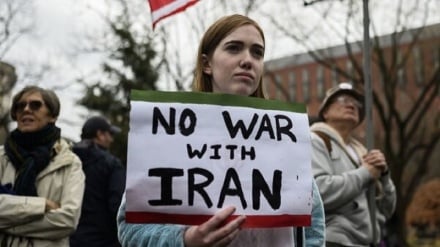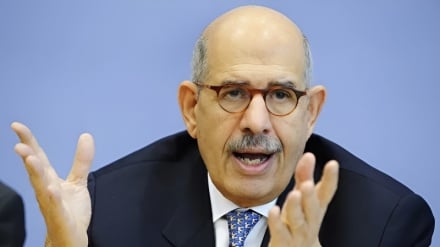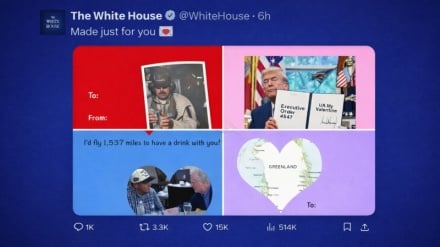The wheels are coming off
Donald Trump’s US policy is a failure on all fronts, especially in West Asia, where he has made a laughing stock of himself.
Now we have an article for the Lobelog site, titled: “The wheels are coming off” by Gary Sick who served on the National Security Council staff under Presidents Gerald Ford, Jimmy Carter and Ronald Reagan.
A series of events, some of which got little attention in the media, suggest that the wheels may be coming off the Trump administration’s West Asia policy. Admittedly, that policy is not very well articulated, and many knowledgeable observers would regard it as dysfunctional. Yet even a random collection of actions constitute a policy, so let me offer my own interpretation of where we are.
The essential core of the Trump West Asia policy is the alliance with Israel, Saudi Arabia, and the United Arab Emirates. The effort to bring the two Arab states into close association with Israel was the most innovative element of this policy, as was the blatantly transactional nature of the relationship with the two wealthy Arab states. President Trump defined it quite simply as “Just take the money.”
My understanding of the importance of this alliance was to promote and sustain the so-called Deal of the Century on the chronic issue of Palestine. The Zionist entity was obviously an essential player in this process, but Arab cover and money was required to lend the process legitimacy and agency.
The one common interest that tied these parties together was fear and hatred of Iran. None of the West Asian countries could deal with Iran by themself.
So together, Trump, Israeli Prime Minister Benjamin Netanyahu, Mohammad bin Salman (MBS, Heir Apparent and effective ruler of Saudi Arabia), and Mohammed bin Zayed (MBZ, Heir Apparent of Abu Dhabi and effective ruler of the UAE) were going to restructure the landscape of the West Asia.
Reality, of course, intruded.
Netanyahu found himself embroiled in a corruption scandal and was required to call early elections while trying to avoid indictment.
MBS launched a war in Yemen that created the worst humanitarian disaster of modern times. This eventually attracted the attention of the US Congress and other parliaments which began pushing to terminate arms sales to Saudi Arabia. MBS and MBZ, however, doubled down on the war and Trump gave them unstinting support.
MBS and MBZ imposed a blockade of their neighbor and fellow Persian Gulf Cooperation Council member, the fabulously wealthy tiny state of Qatar. Although Qatar was not a member of the Trump alliance, it was the home of al-Udeid, the largest US air base in Southwest Asia and a critical component of all US military activities in the West Asia, including the fight against Daesh.
Jamal Khashoggi, a journalist and contributor to the Washington Post, was slaughtered in the Saudi consulate in Istanbul, Turkey. The CIA and a United Nations investigation concluded that MBS had been associated with the killing. Although President Trump resisted blaming MBS, congressional opposition to Saudi arms sales grew.
The United States did its part in the economic onslaught against Iran. Trump withdrew from the nuclear deal negotiated by his predecessor, restored all sanctions that had been removed, and imposed the most severe sanctions ever levied against a state during peacetime. Iran called it economic warfare.
The objective of this campaign, which was enforced by financial threats against every major country in the world, was never clear. President Trump said he just wanted negotiations; his advisors were on the record as favoring forced change of government. But whatever the outcome, Trump seemed determined to avoid another war in the West Asia.
Iran naturally refused. As its oil markets were closed down, there were mysterious attacks against tankers in the Gulf of Oman – believed to be the work of pro American forces, though Washington tried to deny its involvement. An Iranian oil tanker was illegally impounded at Gibraltar. Iran after due warnings and after giving amply time limit to the European signatories of the JCPOA slightly increased the percentage of uranium enrichment, and said it has the right to go back to the pre 2015 situation before signing of the JCPOA, unless it got relief from sanctions.
On June 20, an Iranian surface-to-air missile shot down an unmanned US reconnaissance drone near the Strait of Hormuz that had intruded into Iranian airspace. The vehicle had taken off from a US base in the UAE.
On July 18, less than a month later, the US Navy claimed that it shot down an Iranian drone after the aircraft allegedly approached the USS Boxer amphibious assault ship in the Strait of Hormuz – but it turned out that either the CENTCOM were telling lies to boost the morale of the dispirited American forces in the region, or had accidentally shot their own drone.
We are not privy to the understandings that may have accompanied the informal US-Israeli-Saudi-UAE alliance, but there is no evidence that any of the states hosting American bases in the Persian Gulf have any voice in Washington’s decision-making. Recent events have made it crystal clear that those host countries, especially the UAE and Qatar, will be regarded by Iran as accessories to US military actions.
The UAE has conspicuously separated itself from Washington and Saudi Arabia. The UAE announced that it does not have sufficient evidence to determine what party was responsible for the tanker bombings. More significantly, the UAE has now announced that it is withdrawing its forces from the civil war in Yemen.
The “Saudi-led alliance” in Yemen today consists of the Saudi air force and a rag tag collection of local militias and mercenaries who are there for the money. This is the moment when MBS should declare victory and accept a UN-brokered peace settlement.
Yemen was supposed to yield to overwhelming power. Qatar was supposed to collapse under siege. Iran was supposed to fold when faced with maximum economic pressure. Even the presentation of the economic portion of the Deal of the Century in Bahrain failed to attract the level of investors that had been expected.
There are major shifts in the balance of power underway in the Persian Gulf. They are not what the Trump administration anticipated.
AS/ME


